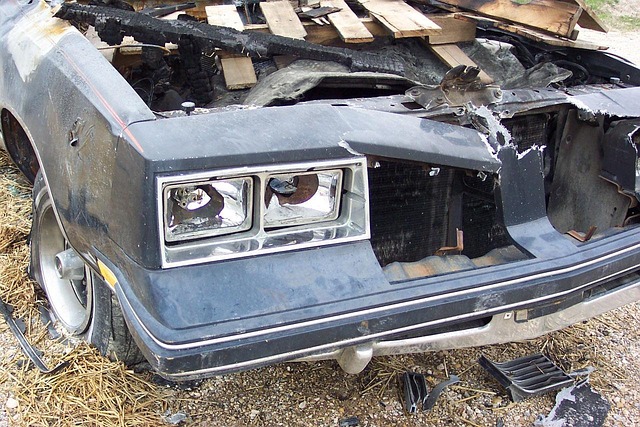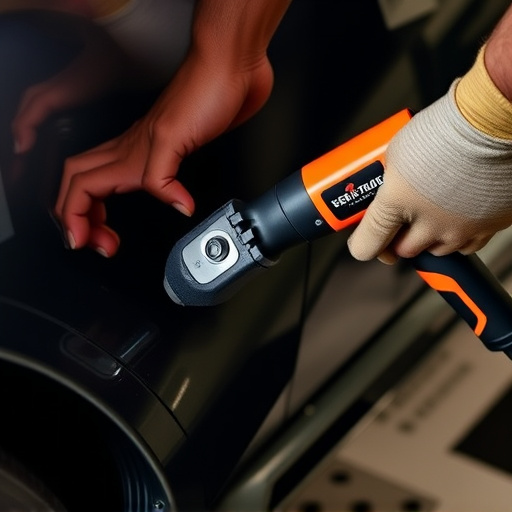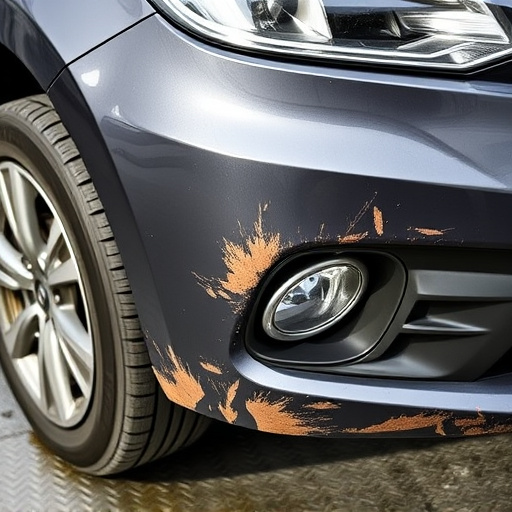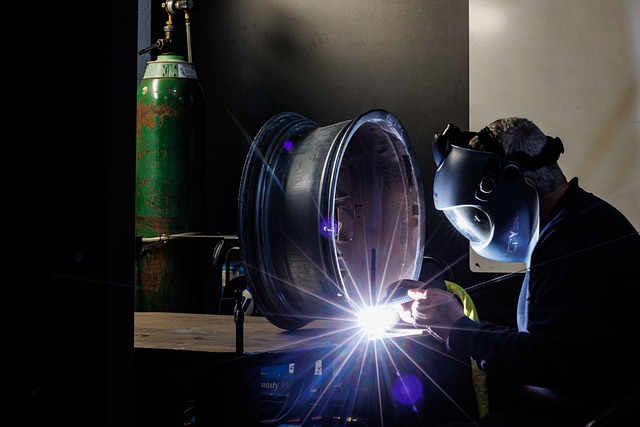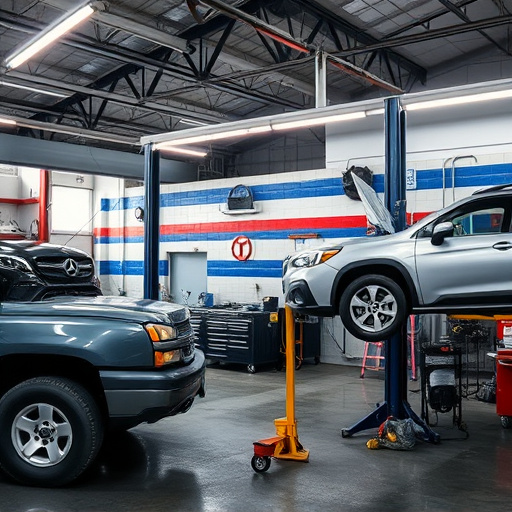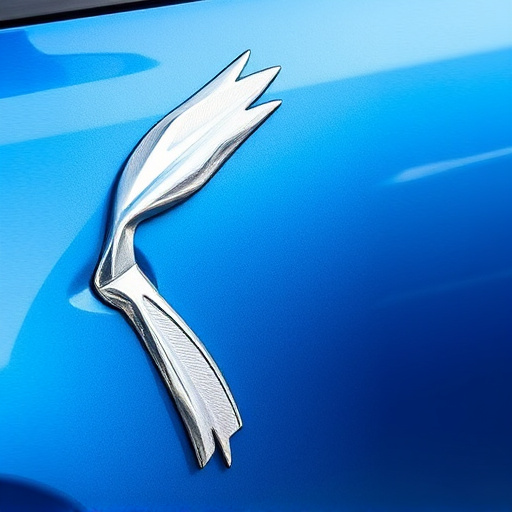Mercedes sensor adjustment is vital for safe and efficient driving dynamics, enabling advanced driver assistance systems like Adaptive Cruise Control (ACC) and Brake Assist. Regular calibration ensures these systems function optimally, enhancing safety features and reducing collision risk. Unaddressed sensor issues can lead to costly repairs or compromised safety, thus, early troubleshooting and adjustments by a trusted auto repair center are essential for maintaining Mercedes' ADAS capabilities and driving peace of mind.
Mercedes Sensor Adjustment: Ensuring Safe and Seamless Driving
In modern vehicles, such as the Mercedes range, sensor adjustment plays a pivotal role in maintaining optimal safety features. This article delves into the intricacies of Mercedes sensor adjustment, highlighting its fundamental role in enhancing critical systems like Adaptive Cruise Control (ACC) and Brake Assist. By understanding how these sensors work and staying informed about maintenance practices, drivers can ensure their Mercedes vehicles deliver precise, responsive, and safe driving experiences.
- Understanding Mercedes Sensor Adjustment: The Foundation of Safe Driving
- How Sensor Adjustment Enhances Adaptive Cruise Control and Brake Assist
- Maintaining and Troubleshooting Your Mercedes Sensors for Optimal Performance
Understanding Mercedes Sensor Adjustment: The Foundation of Safe Driving
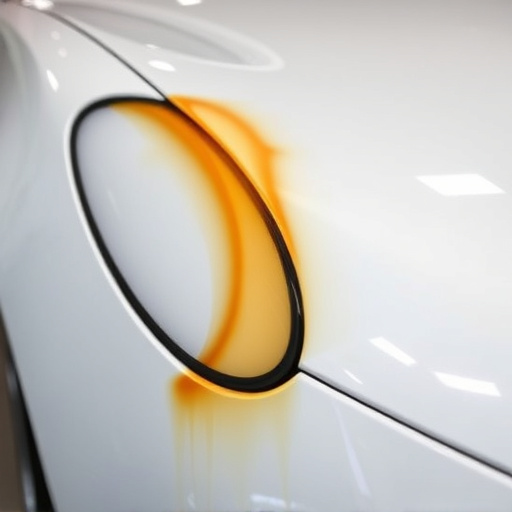
Mercedes sensor adjustment plays a pivotal role in ensuring safe driving dynamics for this luxury vehicle brand. By fine-tuning and calibrating various sensors, Mercedes-Benz vehicles can accurately perceive their surroundings, enabling advanced driver assistance systems (ADAS) like Adaptive Cruise Control (ACC) and Brake Assist to function optimally. These sensors detect obstacles, other vehicles, and road conditions in real time, allowing the car to make necessary adjustments for a smoother and safer ride.
Proper Mercedes sensor adjustment is not just about maintaining the vehicle’s performance; it’s also crucial for collision repair services. In the event of an accident, damaged or malfunctioning sensors could compromise safety and necessitate vehicle body repair. Automotive collision repair professionals are equipped to diagnose and adjust these sensors, restoring them to their original specifications and ensuring that safety systems operate as designed.
How Sensor Adjustment Enhances Adaptive Cruise Control and Brake Assist

Mercedes sensor adjustment plays a pivotal role in enhancing the performance of Adaptive Cruise Control (ACC) and Brake Assist systems. These sensors are strategically placed throughout the vehicle to monitor various parameters such as speed, distance to the car ahead, and brake applications. By adjusting these sensors, Mercedes ensures that ACC can accurately maintain a safe following distance, even under dynamic driving conditions. This adjustment allows the system to respond swiftly to sudden stops or changes in traffic flow, thereby preventing potential car collisions.
Moreover, precise sensor adjustment improves the effectiveness of Brake Assist. When the system detects a possible collision, it can automatically apply the brakes with enhanced force and timing, reducing the risk of car damage repair significantly. This feature not only enhances safety but also gives drivers peace of mind, knowing that their vehicle is equipped to handle critical situations effectively. Proper sensor adjustment ensures that these advanced driver-assistance systems (ADAS) operate seamlessly, contributing to a safer driving experience without relying heavily on manual intervention.
Maintaining and Troubleshooting Your Mercedes Sensors for Optimal Performance

Maintaining your Mercedes sensors is crucial for ensuring optimal performance of adaptive cruise control and brake assist systems. Regular check-ups at an auto repair shop are essential to keep these critical components in top shape. A professional mechanic can perform a thorough inspection, adjusting any sensors that have drifted out of calibration over time. This meticulous adjustment guarantees that the system functions seamlessly, enhancing safety and driving comfort.
Troubleshooting issues early on can prevent costly repairs down the line. If you notice unusual behavior like erratic braking or inaccurate speed readings, don’t ignore it. Visit a trusted tire services center for a diagnostic check. Often, sensor adjustments or replacements are all that’s needed to resolve these problems. Keeping your car’s sensor systems well-maintained is an investment in your safety and peace of mind while driving.
Mercedes sensor adjustment is a key component in ensuring the safety and efficiency of modern vehicles, particularly in features like Adaptive Cruise Control (ACC) and Brake Assist. By finely tuning these sensors, drivers can experience smoother, more responsive driving. Regular maintenance and troubleshooting are essential to keep your Mercedes sensors performing optimally, thereby enhancing overall vehicle performance and safety.




